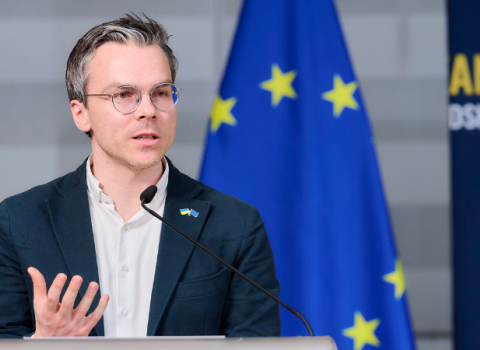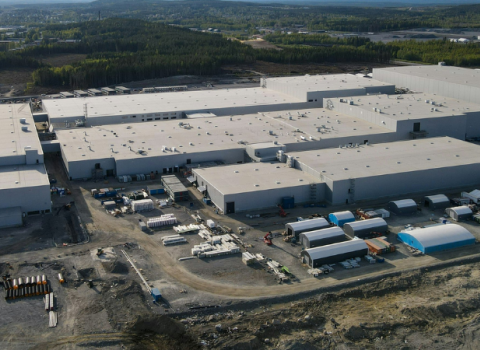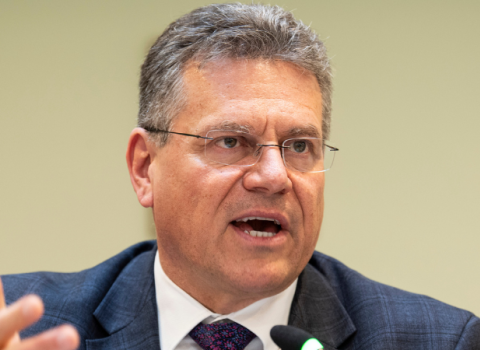The University of Eastern Finland is a partner in the BATCircle 2.0 project, which constitutes part of Business Finland’s Batteries from Finland ecosystem. Led by Aalto University, the main goal of the BATCircle 2.0 consortium is to add value to the Finnish battery sector and turn it into a billion-euro industry.
Business Finland has granted the BATCircle 2.0 (Finland-based Circular Ecosystem of Battery Metals) consortium nearly 11 million euros of funding. Established in 2019, the BATCircle consortium aims at improving the manufacturing processes of mining, metals refining and battery chemicals, and at increasing the recycling efficiency of lithium-ion batteries. Led by Aalto University, the BATCircle 2.0 consortium consists of six research organisations and 15 companies.
The goal of the BATCircle 2.0 project is to develop the Finnish battery metals and materials sector and to reduce Europe’s dependence on the supply of both raw materials and battery cells from overseas. It is hoped that the Finnish battery industry will reach a value of up to one billion euros.
“We believe that our domestic battery metals ecosystem will enable the growth of a European ecosystem that follows the principles of a circular economy and further strengthens Finland’s position in the field,” says Mari Lundström, Principal Investigator of BATCircle and Associate Professor at Aalto University.
“The BATCircle consortium addresses the targets of the Finnish national battery strategy launched earlier this year, and the targets set in the European battery ecosystem. Our aim is to accelerate Finland’s sustainable and low-carbon economic growth and support the achievement of climate objectives in transport by developing skills in the field and by expanding co-operation,” says Tuomas van der Meer, Technology Manager at Metso Outotec.
“Close cooperation between companies and research organisations is essential in order to reach the ambitious goals of the BATCircle consortium. Finland has all the know-how and there is a shared ambition to make our country the most attractive global partner in this fast-growing industry. Business Finland’s role is to enable and accelerate innovations and top-level research and to support internationalisation of solutions and business models,” explains Ilkka Homanen, Head of the Smart Mobility and Batteries from Finland programme at Business Finland.
According to Professor Jorma Jokiniemi from the University of Eastern Finland, it is important that raw materials available directly from the Finnish mining industry can be utilised in the aerosol processes when synthetising the active battery cathode and anode materials. Jokiniemi is the leader of the co-innovation sub-project, whose funding amounts to 490,000 euros.
“For us, a specific focus in this project is the manufacturing of new, active materials that are needed for batteries. Our researchers have plenty of experience and know-how in using aerosol technology methods to synthetise battery electrode materials,” Jokiniemi says.
Aerosol technology methods refer to the synthesis of the gas phase either through flame spray pyrolysis or other high-temperature processes. The project makes use of the Funktiomat materials research infrastructure (https://sites.uef.fi/fine/front-page/funktiomat/) on the Kuopio Campus, where cathode and anode materials used in lithium-ion batteries can be synthesised in quantities that are sufficiently large for electro-chemical analyses.
BATCircle2.0 consortium members:
- Aalto University, University of Eastern Finland, LUT University, University of Oulu
- Geological Survey of Finland (GTK), VTT Technical Research Centre of Finland
- Boliden Harjavalta Oy, Finnish Minerals Group Oy, Fortum Waste Solutions Oy,
Metso Outotec Oyj, Norilsk Nickel Harjavalta Oy, Terrafame Oy, Umicore Finland Oy, AkkuSer Oy, BroadBit Batteries Oy, Oy Fennoscandian Resources Ab, FinnCobalt Oy, Keliber Technology Oy, Latitude 66 Cobalt Oy, Mawson Oy, X-Ray Minerals Services Finland Oy
This article was first published on June 21 by University of Eastern Finland.





 A unique international forum for public research organisations and companies to connect their external engagement with strategic interests around their R&D system.
A unique international forum for public research organisations and companies to connect their external engagement with strategic interests around their R&D system.